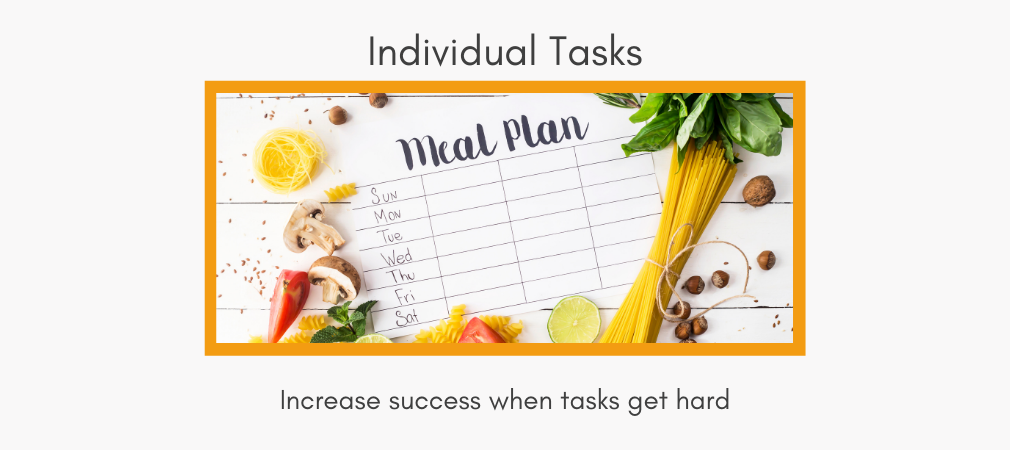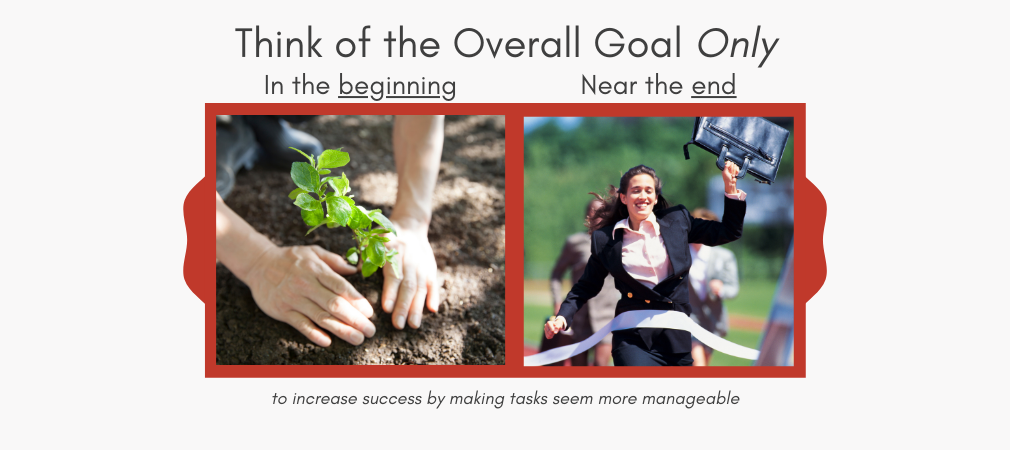3 Tips to Help Achieve Your Goals
As I mentioned at the beginning of this article, achieving goals is hard. Many factors can come into play to interfere with making consistent progress.
So, let’s look at three more strategies you can use to help accomplish that next goal you have in mind.
1. Commit By Using Mental Contrasting
When it comes to achieving a goal, how do you know if it's time to go "all in" and go for it?
Often, it's easy to beat yourself up if you don't achieve a goal. Yet, it isn't easy to achieve a goal if you never truly commit to it.
Mental contrasting can help with that.
What is mental contrasting?
This technique involves imagining a positive vision of achieving your goal and contrasting that vision with the negative aspects of reality (i.e., the realistic challenges of achieving that goal).
Oettingen et al. (2001) conducted an experiment in which study participants utilized different techniques to help them decide how to achieve a particular goal.
Using mental contrasting was the hands-down winner in helping people make action plans.
However, this method only worked when expectations of success were high.
Essentially, this technique can be pretty helpful in teasing apart whether it's worth pursuing a goal.
If you feel your chances of success are high, this technique will help you lock down on making a plan and pursuing your goal.

2. Overcoming Procrastination
Whenever you decide to go after a goal, it would be unrealistic to think that there won’t be obstacles.
And more than likely, the temptation to procrastinate will be one of them.
And when going after a big goal, there will likely be many opportunities to falter and succumb to procrastination.
One of the keys to success and overcoming procrastination is balancing tasks (required to meet your goal) to achieve the overall goal.
Houser-Marko & Sheldon (2008) completed an experiment examining how people reacted to failure depending on whether they were focused on individual tasks or the overall goal.
Results showed that when tasks get hard and your chances of failure are high, focus on the tasks required to achieve your goal.

For instance, let's say you have a weight loss goal you want to achieve, and you are halfway there, but you've hit a sticking point in your progress.
This would be the time to focus on your daily exercise and eating plan (i.e., individual tasks).
If you focus on the end goal now, it will seem very far away, which will hurt your motivation to continue.
Based on other research, the best time to focus on the overall goal is initially (when the end destination is inspiring) and towards the finish (when the tasks become more manageable and success is within your grasp).

So, to continue with our weight loss example, in the beginning, when you set your specific weight loss goal, and towards the end, when you are only a few pounds away, it would be the best time to focus on your overall goal.
3. Have An "If-Then" Plan
I'm a big believer in preparation.
"Fail to plan, plan to fail." It may sound like a trite saying meant for a Successories calendar, but there is truth to it.

Any goal worth pursuing will have obstacles, and it's essential to have a plan, especially for the foreseeable obstacles.
For instance, to continue with our weight loss example from above, if you are attempting to lose weight and know you are going to a restaurant that evening, planning before you get there makes sense.
Merely showing up at the restaurant, opening up a menu, and starting to peruse it to see what looks tasty will make it challenging to stick to your eating plan.
Gollwitzer et al. (2006) examined the importance of self-regulation when attempting to achieve a goal by having a study participant utilize "If-Then" plans.
Results showed that "If-Then" plans helped study participants overcome obstacles in achieving their goals.
So, in returning to our restaurant example, an effective "If-Then" plan would be to know what you will eat before you ever get there.
Or another possible "If-Then" plan could be, "If I go to the restaurant and there are limited healthy food options, then I will fill up on water and a healthy salad to help tide me over until my next meal."
Do you find it challenging to achieve a goal when your mind is cluttered?
What strategies do you find helpful when you want to achieve a goal?
Join the conversation on Facebook!




